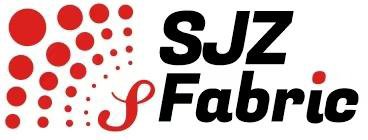The US has a rich textile sector. It combines history and high-tech innovation. American fabric manufacturers lead the way in cotton fields in the South to high-tech mills in the North. They have more than 500,000 employees throughout the country. The industry brings in billions of revenue annually. The idea of sustainability takes the lead. Makers are concerned with sustainable yarns and recycled blends. Consumers demand it. Brands follow suit. The list identifies the 10 leading fabric manufacturers. Each is excellent in quality and scope. We dive into their stories. Find out what is unique about them. These corporations influence both wardrobes and industries.
Top 10 Fabric Manufacturers in the United States in 2025
1. Milliken & Company
Milliken Company was founded in 1865 in Spartanburg, South Carolina. The company is still family owned and highly innovative. Its large factories cover the Southeast, with a total area of more than 10 million square feet. There are approximately 7,000 workers who work in thousands of dyeing machines and looms. Milliken is the producer of performance, industrial, and healthcare fabrics. They also manufacture home textiles and denim collections. Each batch is tested heavily on strength, colorfastness and consistency. Their quality assurance systems are guided by ISO certifications. It focuses on sustainability and the use of recycled polyester lowers waste. Milliken is unique with its innovation and patented textile technology. Antimicrobial fabrics and flame-resistant fabrics demonstrate high-level engineering. They have a good reputation that invites the best world brands that have confidence in Milliken when it comes to reliability and quality.
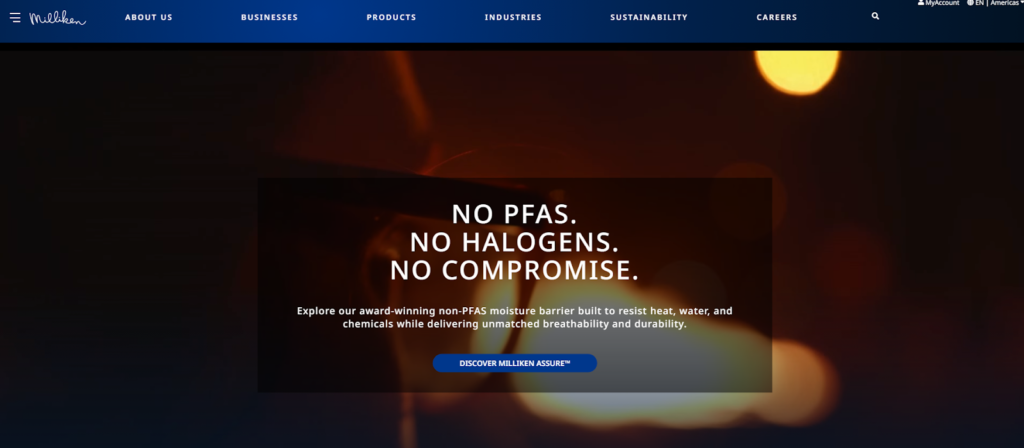
2. Mohawk Industries
Mohawk Industries, which were established in New York in 1878, are based in Calhoun, Georgia. They have a production presence of 10 states and more than 50 million square feet. Over 43,000 workers work with high-tech machines, including more than 1,000 tufters. Mohawk specializes in carpets, rugs, hard surface tiles and upholstery textiles. They have automated scanners and chemical tests on their quality assurance process to check durability and color retention. The company recycles its scrap yarn 100 percent to reduce wastes. The flooring industry is characterized by the innovation of Mohawk. They are the pioneers of the sustainability movement with their EcoWorx tiles made of renewable materials. Designers are attracted to Mohawk because it has strong designs and a huge choice. It is the biggest flooring manufacturer in the world, which is a symbol of innovation and responsibility.
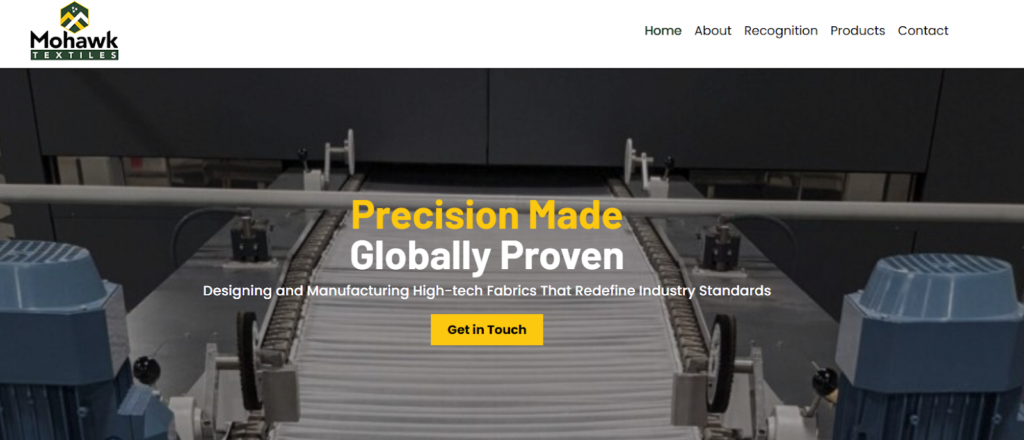
3. Unifi, Inc.
Unifi was established in 1971 in Greensboro, North Carolina. It has factories in the Carolinas that cover approximately 2.5 million square feet. Approximately, 2,600 skilled workers handle more than 300 knitting machines. The company manufactures synthetic fabrics with the emphasis on performance and sustainability. Their REPREVE polyester converts recycled plastic bottle to durable yarn. The testing laboratories of Unifi determine tensile strength, UV resistance, and colorfastness. The company adheres to the GRS and other international sustainability regulations. They recycle more than 20 billion bottles annually. REPREVE fabrics follow worldwide brands such as Patagonia and Nike. Unifi has a transparent supply chain that is reliable. Its innovation lab is working on developing environmentally friendly yarns in future textiles. The company transforms the meaning of recycling in the fabric world.
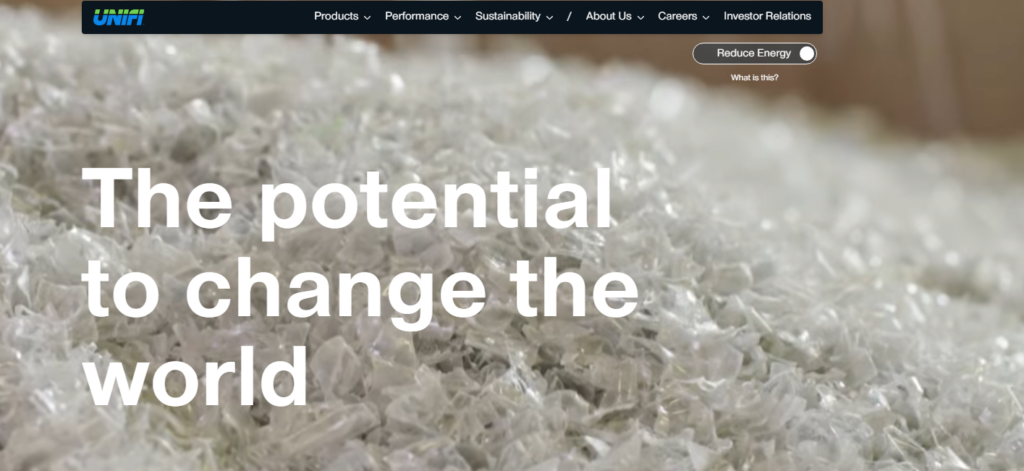
4. Glen Raven Custom Fabrics
Glen Raven began in 1921 and is based in Glen Raven, North Carolina. It operates on more than 1.2 million square feet and has 3,500 professionals. The company has a brand called Sunbrella. They make outdoor fabrics, marine fabrics and upholstery fabrics through more than 200 high-tech looms. Coating units increase colors and durability. Glen Raven conducts rapid weathering, mildew resistance, and color-matching. All products are Oeko-Tex certified. The firm has solution-dyed acrylic technology that will give it lasting color. Sunbrella fabrics have a ten-year warranty, which is a statement of quality. Their international coverage caters to marine, domestic, and hospitality industries. Glen Raven is a combination of durability and design.
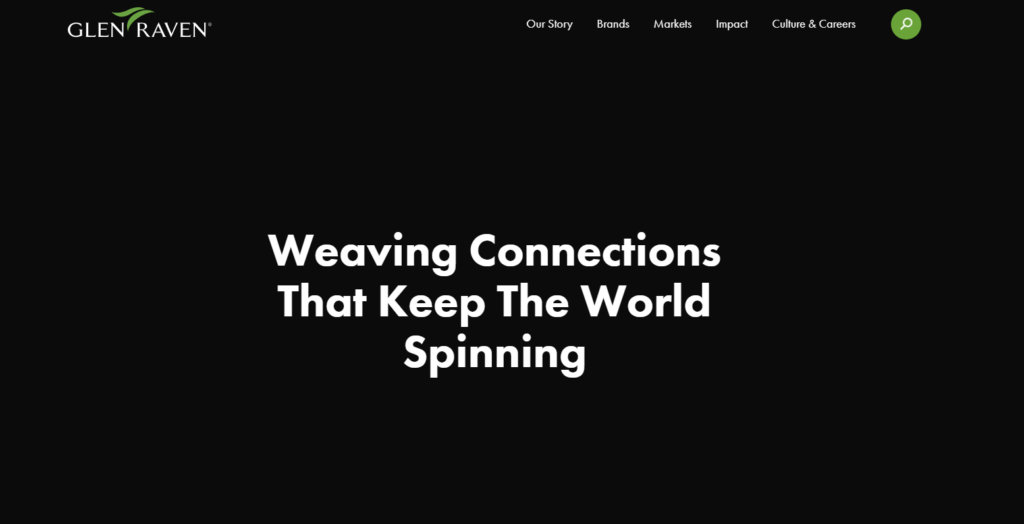
5. Elevate Textiles (previously Parkdale Mills)
Elevate Textiles was founded in 1907 and has its headquarters in Gastonia, North Carolina. It has 4 million square feet of space in its mills across the Southeast. There are more than 5,000 employees, who operate 1,000 spinning frames and 500 weaving looms. The firm produces cotton shirts, denim, domestic fabrics, and technical fabrics. Testing on quality involves yarn strength, fabric pilling, and uniformity of color. AATCC standards are reliable and performance based. Elevate controls all spinning and weaving. They provide clothes to big international companies such as Levi. They have sustainable sourcing of cotton that favors environmental objectives. Quick reaction and in-house manufacturing enhance competitiveness. Elevate is the embodiment of American textile experience founded on innovation and tradition.

6. Apex Mills Corporation
Apex Mills was started in 1943 in Airmont, New York and then expanded into North Carolina. The facilities of the company occupy 400,000 square feet and have approximately 300 specialists. It has more than 150 narrow looms and coating lines that work every day. Apex manufactures industrial, medical, and defense engineered textiles. Their labs are used in testing bursting strength, flame resistance, and antimicrobial performance. The ISO 13485 certification guarantees medical-grade fabrics compliance. Apex is distinguished by customizing. They also develop fabrics to address special engineering issues. Quick-turn prototyping enables rapid delivery of urgent customers. Sustainability campaigns revolve around dyeing that is water-efficient and recyclable materials. Apex designs fabrics to be used in extreme conditions.
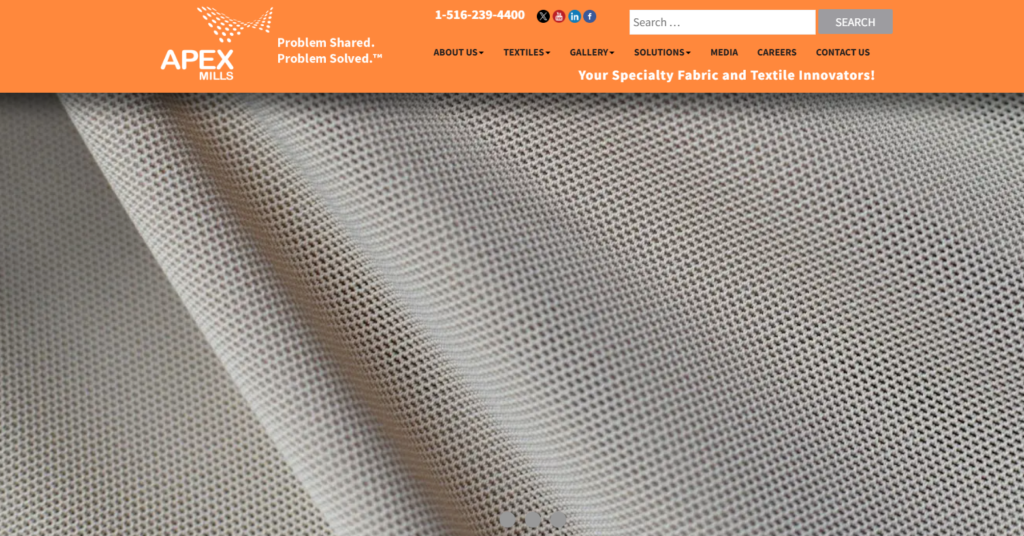
7. Sunbrella Fabrics (Glen Raven Subsidiary)
Sunbrella was introduced in 1961 as a part of the innovation process of Glen Raven. It has special facilities in North Carolina covering one million square feet. There are approximately 1,200 employees working on solution-dye machines and extrusion lines. The company manufactures outdoor upholstery fabrics, contract-grade upholstery fabrics, and marine upholstery fabrics. All fibers are solution dyed to protect the color. Quality tests involve 1,500-hour fade, mildew, and abrasion resistance. The fabrics of Sunbrella are Greenguard certified as clean indoor air. Durability and easy maintenance are the main strengths of the brand. Its colorfast acrylics are resistant to weather, sunlight and stains. Designers love its wide range of color and fashionable textures. Sunbrella has continued to be associated with performance and design excellence across the globe.
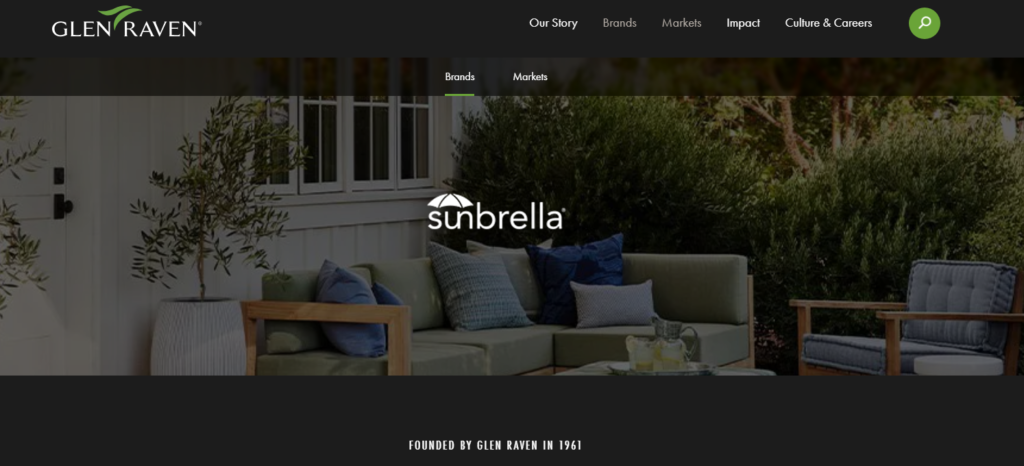
8. Precision Fabrics Group
Precision Fabrics Group was established in 1946 and has its headquarters in Greensboro, North Carolina. It has a manufacturing presence of 800,000 square feet in various plants. There are over 1,000 employees that handle knitting and laminating lines on a daily basis. The company manufactures coated and performance fabrics in the areas of safety, health care, and industrial. A part of their product line is flame-retardant and moisture-wicking fabrics. NFPA and AATCC standards are used in testing protocols to guarantee reliability. Quality tests involve fire spread and water repulsion tests. Precision Fabrics is a leading manufacturer of technical coats that are functional. Their fast prototyping system accelerates the innovation processes. Their operations are motivated by the concept of sustainability through recycling. Their clothing always provides security, comfort, and accuracy.
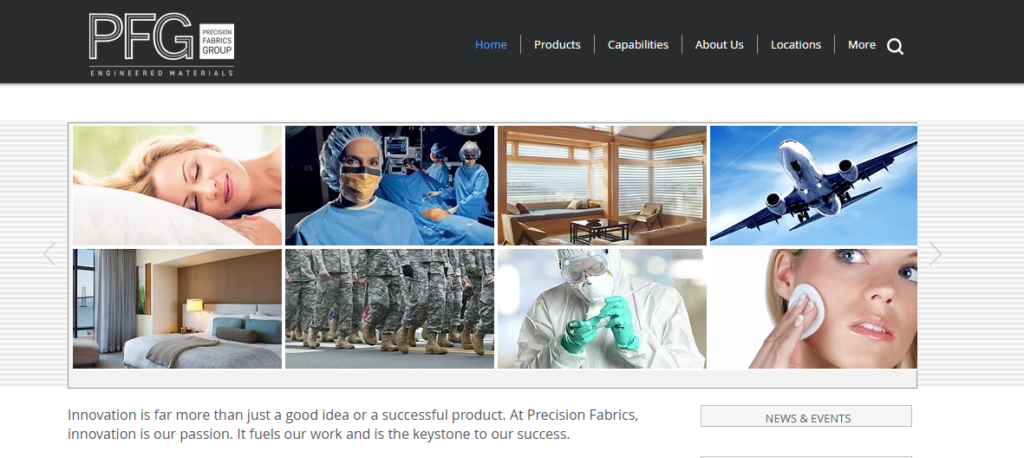
9. Southern Mills Inc.
Southern Mills was established in 1926 in Union City, Georgia. It has a workforce of approximately 800 employees spread across 600,000 square feet facilities. The company deals with flame-resistant clothing and protective garments. They manufacture Nomex blends and high performance textiles on military and industrial usage. Testing plants are NFPA 2112 and ASTM compliant. Arc rating and durability tests are safety tests in extreme conditions. The fibers developed by Southern Mills are patented and extinguish flames on their own and enhance the comfort of the wearer. Their research and development department comes up with next-generation protection fabrics. They provide essential equipment to firefighters, soldiers, and first responders. Protection and performance are the strengths of Southern Mills. Their inventions are life-saving and have been proven to be dependable.

10. Bally Ribbon Mills
Bally Ribbon Mills was started in 1923 in Bally Pennsylvania. It has now added the California facilities, which cover 150, 000 square feet. More than 400 workers operate hi-tech Jacquard looms and narrow-width machines. Bally deals in narrow fabrics such as webbings, tapes, and medical meshes. Their textiles are used in the aerospace, defense, and healthcare sectors. Tensile strength, dye fastness and dimensional stability tests are quality control measures. AS9100 certification provides adherence to the aviation standards. Bally boasts of precision and craftsmanship in his work. Their proprietary solutions sustain advanced applications including seatbelts and spacecrafts. Low-water dyeing technologies are among the sustainability efforts. Bally is a blend of tradition and modern innovation in weaving.
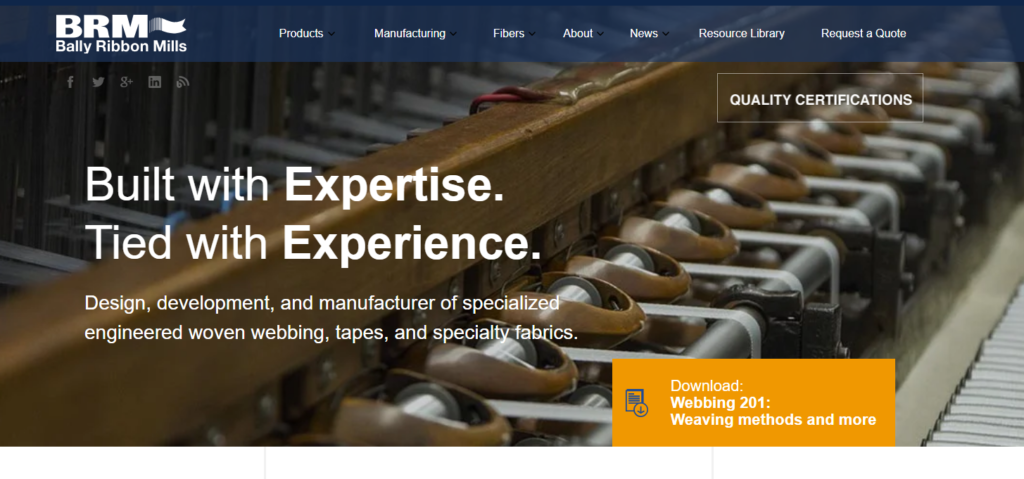
China Fabric Manufacturers vs USA Fabric Manufacturers
The capabilities of fabric manufacturing in China and the United States are strong. However, they vary drastically in terms of their production style, technology and business priorities. These differences can be understood so that you can select the appropriate sourcing approach.
1. Capacity and Scale of Production
The Chinese fabric manufacturers have the highest production capacity in the world. Their enormous factories have thousands of looms and dyeing units. There are whole chains of supply in such provinces as Zhejiang and Jiangsu. They can process large orders in a cost-efficient manner.
The U.S. fabric mills are smaller, specializing and innovative. Their robotic systems are precise and material progressive. They are more concerned with quality consistency as opposed to mass production.
2. Labor and Automation
China relies on a huge semi-automated workforce. This structure is flexible but can have an impact on consistency.
The American sector depends on robotics and complete automation. Spinning, weaving and testing are done with great precision by machines. Efficiency is managed by highly skilled technicians and not by the hands.
3. Fabrics and Products Focus
Chinese mills are leading in polyester, nylon, viscose, and blended textiles. They cater to global fashion, upholstery and industry markets.
American producers deal with technical and sustainable fabrics. Firms such as Milliken and Polartec produce flame-resistant and moisture-wicking fabrics. Their niche strength is fuelled by innovation.
4. Quality Control and Testing
Chinese exporters adhere to ISO and OEKO-TEX, but smaller suppliers are different. Audits are commonly done by buyers to make sure there is consistency.
The U.S. mills have rigorous internal fabric test laboratories. They are guided by ASTM and military standards, which guarantee consistent and dependable results.
5. Sustainability and Environmental Policies
The sustainability practices in China are also increasing with recycled water systems and eco dyes. Nevertheless, it is regionally enforced.
In the United States, sustainability is legally implemented and industry-oriented. Mills are developed in accordance with EPA and OSHA standards, with accents on renewable energy and recycling.
6. Supply Chain Speed and Lead Time
Chinese factories are leaders in short lead times and fast delivery in mass. Fiber to finish processing is fast with integrated operations.
The U.S. manufacturers possess lengthy cycles and provide reliable schedules. Their domestic logistics are reliable to North American brands.
7. Cost and Pricing Structure
China is cheaper because of the low cost of labor and raw materials. Their size reduces unit costs to international customers.
Mills in the U.S. are more expensive due to technology and compliance costs. Nevertheless, customers benefit with high quality and lower shipping risks.
8. Innovation and Research and Development Investment
Mills in the U.S. are the leaders in R&D and material science. Such brands as Milliken create patented fibers and coatings. Long-term industry influence is provided by innovation.
Chinese manufacturers are concerned with process upgrades and technology adoption. They are fast developing but rarely innovative in textile breakthroughs.
9. Individualization and Adaptability
China encourages extensive customization of colors, textures and designs. The factories are able to adapt fast to market needs.
U.S. mills are tailored to technical performance and industrial use. They are more focused on accuracy and testing rather than aesthetic flexibility in their processes.
10. Market Reputation and Customer Confidence
China has the largest volume but has a weak reputation because of the smaller vendors. Big certified mills are trusted all over the world.
U.S. producers are respected in terms of accuracy, honesty, and quality production. Made in USA is still a symbol of high quality.
| Criteria | China Fabric Manufacturers | USA Fabric Manufacturers |
| Production Scale | Massive industrial operations | Smaller, specialized facilities |
| Labor & Automation | Labor-intensive, semi-automated | Highly automated, tech-driven |
| Fabric Types | Polyester, nylon, blends | Technical, sustainable fabrics |
| Quality Control | Varies by supplier | Strict internal testing |
| Sustainability | Improving but uneven | Strong regulations and compliance |
| Lead Time | Short, efficient for bulk orders | Longer but dependable |
| Cost | Low-cost, high-volume | Higher-cost, precision-focused |
| Innovation | Process improvement-focused | R&D and patent-driven |
| Customization | Trend-responsive, flexible | Technical and performance-based |
| Reputation | High volume, variable quality | Premium, consistent trust |
SJZ Fabric – A State of the art fabric manufacturer focusing on the US Market
SJZ Fabric was established in 1992 and is headquartered in Guangdong, China, and is one of the three leading textile manufacturers in the nation. The company has a massive 390,000m 2 factory and over 155 skilled craftsmen with more than 30 years of experience. It has sales of more than 100 million RMB annually and exports to more than 35 countries including a keen interest in the U.S market.
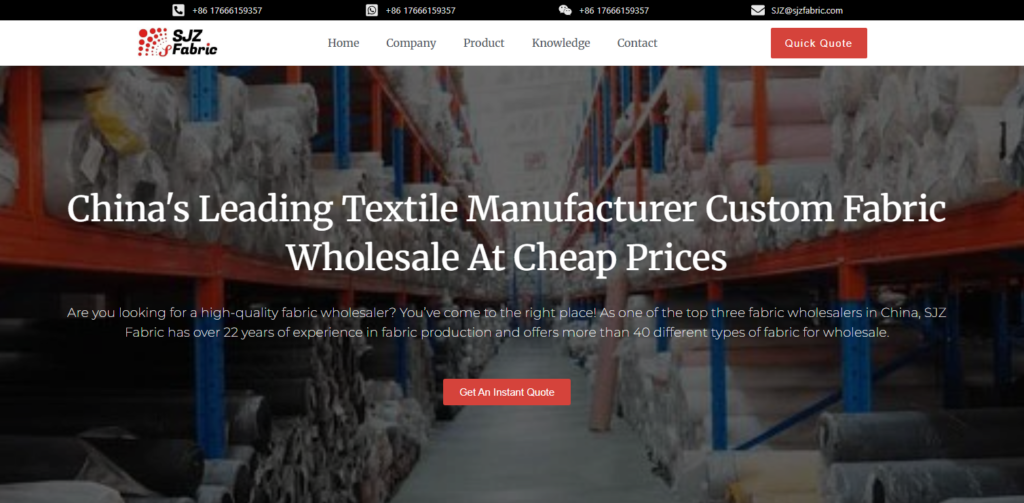
SJZ fabrics manufactures over 40 varieties of fabrics such as cotton, synthetic blends, silk, linen, organza, and chiffon. The company also incorporates innovation and traditional craftsmanship, which ensures high tensile strength, great colorfastness, and high breathability. Each consignment passes through multi-level quality inspection and is subject to international safety standards.
SJZ Fabric provides free tests to clients of their texture, color accuracy, stretchability, and shrinkage to assist them in making informed decisions. They offer elastic shipping services, such as express, LCL, FCL, sea, and air freight-delivering on time worldwide. Supported by a 3-year warranty and a dependable after-sales service, SJZ Fabric can be a reliable partner of U.S. brands that want to find durable, sustainable, and custom-made textiles.
Conclusion
The textile producers in the United States still dominate the world in terms of textile quality and precision. Their commitment to the quality control of fabric, the high level of fabric inspection, and the strict textile testing and quality control provide them with the assurance that all yards can be of the international standard. Textile quality assurance systems are applied by leading companies to ensure consistency, durability and performance across applications. As the mills of the U.S. lead the way in innovation and sustainability, international competitors such as SJZ Fabric of China supplements the industry with massive manufacturing, rigid quality regimes, and customized exports to the U.S. market- it is a blend of the artisanal and the reliability.
